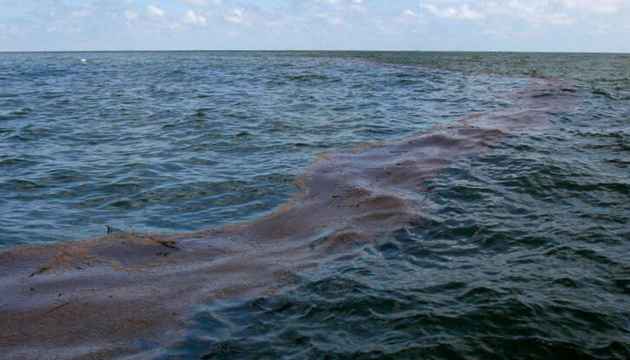
Ukraine, Romania, Bulgaria align actions on international response to Black Sea fuel oil pollution
Ukraine, Romania, and Bulgaria have agreed on coordinated steps at the ministerial level to engage with international institutions regarding a large-scale ecological disaster in the Black Sea caused by fuel oil pollution.
According to Ukrinform, this was reported by the press service of Ukraine’s Ministry of Environmental Protection and Natural Resources, citing Minister Svitlana Hrynchuk.
Hrynchuk recently held another online meeting with Romanian Minister of Environment, Water, and Forests Mircea Fechet and acting Bulgarian Minister of Environment and Water Petar Dimitrov.
The officials agreed to focus on coordinated efforts to limit the deployment of Russia's aging fleet in the Black Sea, which poses potential threats to the marine ecosystem.
They noted that the absence of verified data on the consequences of the December 15, 2024, Russian tanker accidents and the subsequent spread of fuel oil remains a critical issue.
According to the Ministry of Environmental Protection, current satellite images reveal that pollution from Russian fuel oil has reached the city of Yevpatoria. The Ukrainian Scientific Center for Environmental Monitoring continues to monitor the development of this emergency.
"The colleagues emphasized that our cooperation is not a favor to Ukraine but a shared responsibility. The Black Sea connects several European nations. Despite mathematical models not showing westward movement of the spill, the consequences of the Russian tanker accidents pose risks to the entire Black Sea. We are talking about tens of kilometers of fuel oil film on the water’s surface, thousands of kilometers of polluted coastline, thousands of dead birds, dozens of dolphins, and disrupted food chains in ecosystems," Hrynchuk stated.
Preliminary estimates by environmental inspectors place the material damage to the Black Sea ecosystem at over USD 14 billion.
Hrynchuk reported that Ukraine has already appealed to the secretariats of UN conventions, UNEP, UNESCO, the European Union, and the International Maritime Organization (IMO). Feedback has been received from the Secretariat of the Commission for the Protection of the Black Sea Against Pollution regarding the need for an extraordinary meeting to address this case.
Additionally, on January 27, this issue will be discussed at a meeting of the IMO Sub-Committee on Pollution Prevention.
As previously reported by Ukrinform, on December 15, two Russian oil tankers, Volgoneft-212 and Volgoneft-239, sank in the Kerch Strait, spilling over 4,000 tons of fuel oil into the Black Sea.
Following the disaster, 1,700 tons of oil-contaminated sand were collected along the shores of Krasnodar Krai.
In January, dozens of pollution sites were detected in Crimea. Fuel oil from the sunken Russian tankers has already reached the northeastern coast of temporarily occupied Crimea, including Feodosia, Alushta, and Sudak.
Meanwhile, the Ministry of Environmental Protection, after modeling based on satellite images, stated that there is currently no threat to Odesa region.
